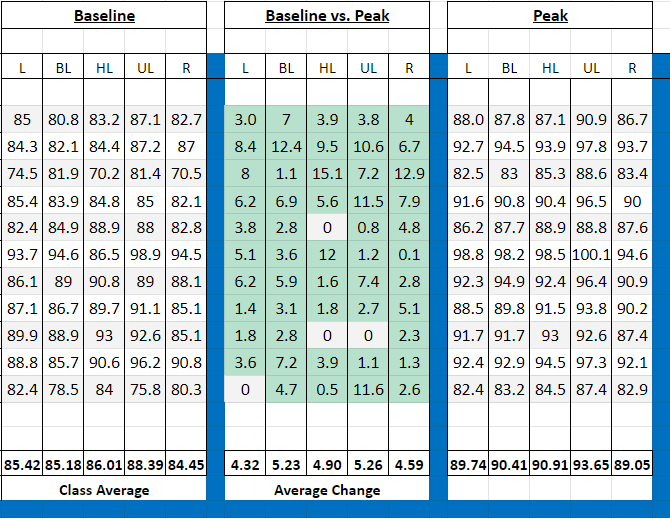Lopes Look to Set Standard for Player Development

Lopes Look to Set Standard for Player Development
As data becomes more integrated into the everyday life of the baseball community, the focus of coaches and players has shifted toward player development and away from playing time. In the last five years, there has been an increasing trend of high school players taking a gap year to focus on developing their skills to make themselves more productive when they return to a team setting. To stay ahead of the ever-shifting landscape of the baseball world, Lamar Community College opened a development center in the fall of 2019. The Development Center's goal is to provide a data-driven training environment that allows athletes to focus on individual growth outside of in-game competition.
To continue being one of the top junior college programs in the country, Push Performance and owner DJ Edwards (Class of 2005), was brought in to perform a physical assessment with all the athletes in the LCC baseball program, including athletes in the Development Center, at the beginning of the semester to better understand the athlete's deficiencies and develop individual lifting programs for each athlete. DJ and his team will reassess throughout the year and make adjustments to the athlete's program. The physical assessments focus on the athlete's mobility, stability, and strength. The baseline assessment was used to develop a weightlifting program implementing velocity-based training (VBT) that would address deficiencies in the athlete's movement and strength.
The twelve hitters in the program worked with Axe speed trainers to develop bat speed and increase exit velocity. Axe bat speed trainers utilize variable implement training with overload and underload bats to help the athlete develop proprioception and kinesthetic awareness commonly referred to as "feel." The training also utilizes hitting plyoballs which are weighted and have more give than a baseball. These plyoballs force the hitter to stay strong through contact and develop a bat path that can make solid contact. The training program allows for the hitter's body to naturally organize itself while focusing on hitting the ball as hard as possible. After one semester, the Development Center posted an average exit velocity increase of 4.59 mph with the game bat.

(L- Long Trainer, BL- Barel Loaded, HL- Handle Loaded, UL- Underload, R- Game Bat)
"I am very pleased with the work and discipline the players have shown over the semester. Driveline is one of the best baseball facilities in the country and averages 6 mph over 10 weeks, so we are close to where I would like us to be." - Coach Fasone
Athletes also began a velocity program to increase arm strength that will continue throughout the holiday break and into the spring semester. The spring semester will continue to focus on strength and speed but include more game-like training as players prepare for the summer season. Now that the athletes have developed a good foundation of strength and speed training focus will shift toward utilizing those skills during in-game competition. This training will include training vision, approach, and adjustability.
"The success of the Player Development Center both on and off the field has been tremendous. They achieved a 3.18 GPA in the classroom and have really sped up their ability to play at the college level. It really has exceeded all expectations, and we really look forward to seeing it continue to grow," Buck said.
While players in the Development Center have a different focus for their development, they are still a part of the Lamar Community College baseball program and are held to the same standards as every other player. Every player in the program is expected to be disciplined in how they go about their business on and off the field. Lamar players are expected to show up 15 minutes early to every appointment, class, or practice, they are expected to take ownership of any failures and seek the proper course of action to address that failure. The program believes that life lessons like these will, first and foremost, make them better people, and as a result better players.

